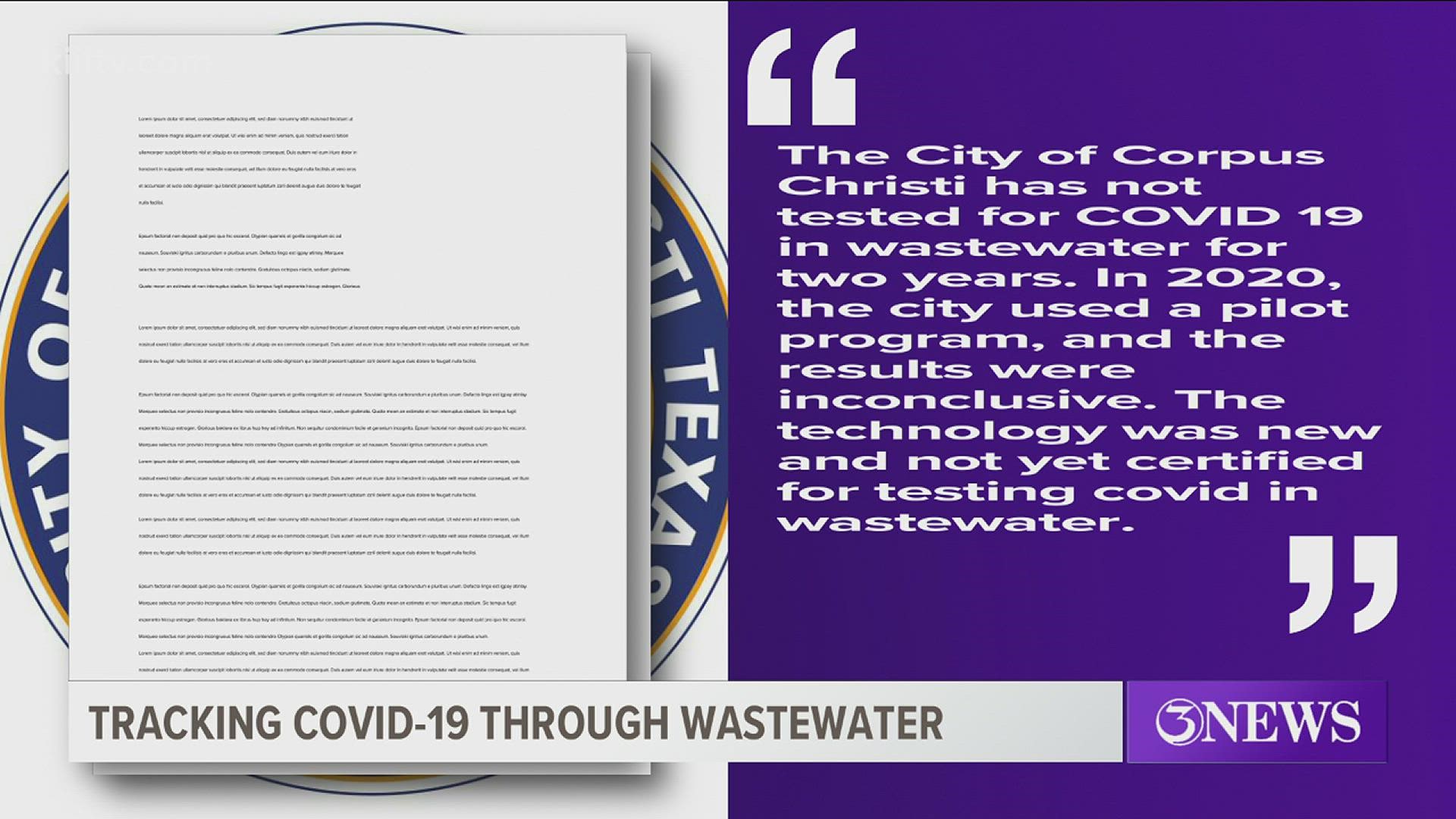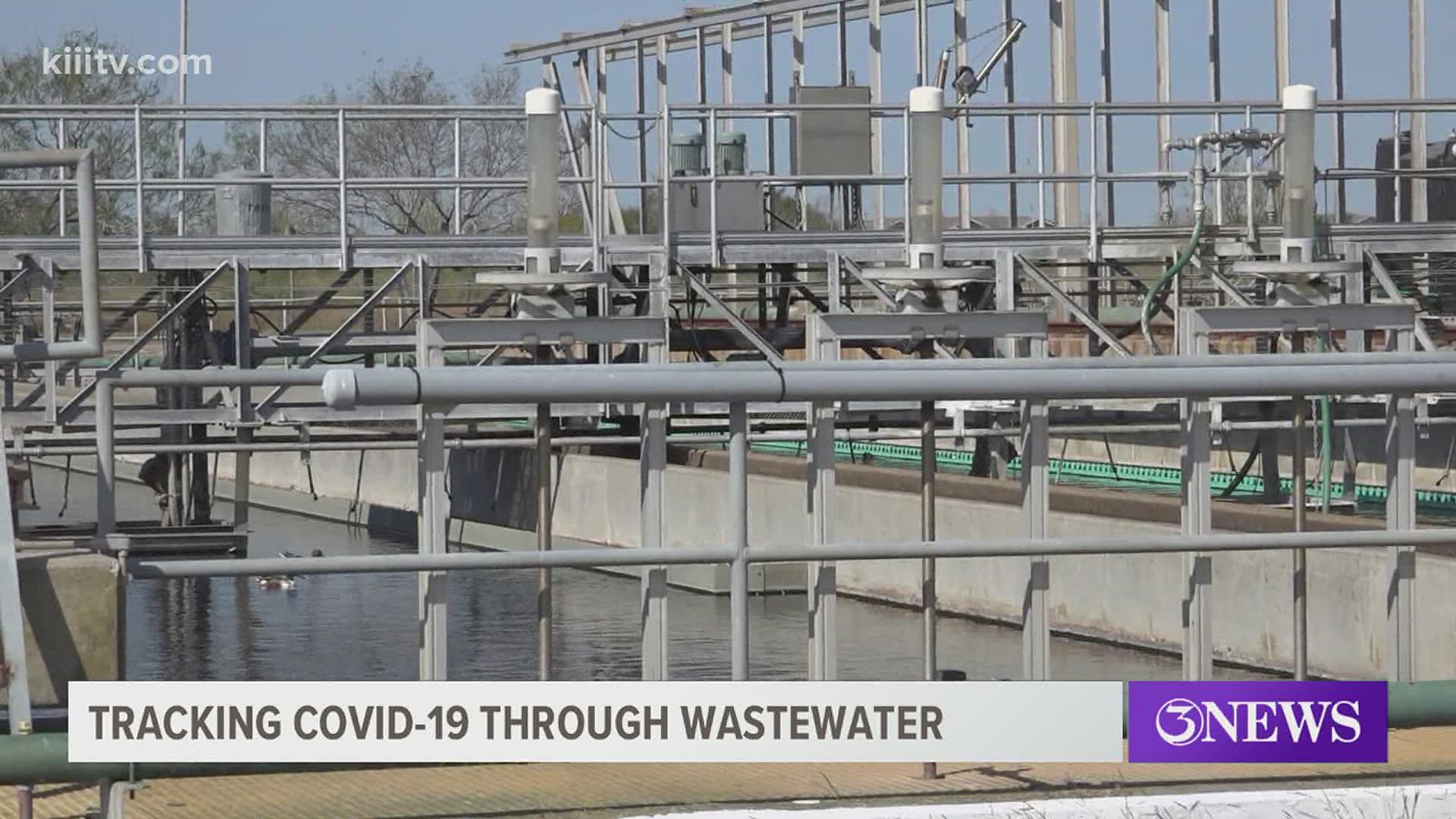CORPUS CHRISTI, Texas — There's a lot you can learn from a little bit of sewage.
Cities across the country have been testing wastewater for COVID-19 to get a better idea of how much the virus is spreading.
Many COVID-19 cases detected in home health tests aren't reported back to health officials. That’s why testing wastewater has become the most accurate way to track the spread of the virus, researchers said.
But Corpus Christi has not tested the wastewater for COVID-19 in two years, according to officials at the city's water department.
"In 2020, the city used a pilot program and the results were inconclusive," a statement from Water Utilities Interim Director, Gabriel Ramirez, said. "The technology was new and not yet certified for testing COVID-19 in wastewater. Because of this, the city decided to no longer pursue these tests."
When asked about the process of detecting the virus in local sewage, City Manager Peter Zanoni said he is not aware of COVID-19 in the wastewater.
"I’ve seen reports about that, where you can have COVID-19 in wastewater, we don’t have any evidence that that’s happening here," Zanoni said. "We have several protocols in place that we continue to talk about to the community and I think those are the primary ones to focus on-- the issues of social distancing, wearing face masks and making sure you're immunized."
But local health officials said wastewater testing is a simple and cost-effective strategy that can identify COVID-19 cases through non-invasive measures. When compared with clinical testing, wastewater testing can provide public health agencies with a 1-2 week of lead time for infection rate data.
"Clinical testing, while an effective way of identifying individual cases of COVID-19, is only part of a complete community testing strategy," Luis Wilmot with the City-County Health District said. "Wastewater testing can be an effective early-warning tool to inform further clinical testing, restrictions and other public health measures."
People who are infected with COVID-19 shed the SARS-CoV-2 virus that causes the disease in their feces.
"This happens even before the onset of symptoms. People can keep shedding genetic material from the virus for several weeks," Wilmot said. "That genetic material can be detected and monitored in wastewater and used to detect trends in COVID-19 infection."
We have reached out to the city to ask if they plan on starting to test the wastewater again and have not yet received a response.
More from 3News on KIIITV.com:
- Nueces County Junior Livestock Show crowns new queen
- New gun laws set to place tighter regulations on how firearms are stored
- 'Extreme risk': Nueces County COVID-19 threat level at red
- Images obtained from Woodsboro hate crime video give details into what happened
- CCISD reports low attendance rates, COVID-19 to blame
- 3 cases COVID-19 omicron variant confirmed in Nueces County
- Where to get a free COVID-19 test in Nueces County
Want to send us a news tip?
Put your name and contact information below so we can get in touch with you about your story should we have questions or need more information. We realize some stories are sensitive in nature. Let us know if you'd like to remain anonymous.
If you do not have a photo/video to submit, just click "OK" to skip that prompt.


